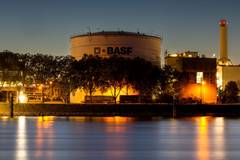GEA is Building a Second 30 Tonne/Hour Milk Powder Plant for Dairy Giant Fonterra
This month GEA Process Engineering was awarded the contract for Fonterra’s next milk powder plant in New Zealand. With a capacity to produce an extraordinary 30 tonnes/hour of milk powder, the plant is the same size as Fonterra’s Darfield Dryer 2 and only the second of this capacity worldwide.
New Zealand dairy company Fonterra stunned the industry and moved the boundaries for production of milk powder in 2012 when it ordered its Darfield Dryer 2 plant with GEA Process Engineering as its engineering partner. Now the company has ordered another plant of the same size to be built near Lichfield in the heart of New Zealand’s dairy country on the North Island.
When the Lichfield plant is ready for the 2016-17 milking season it will process 4.4 million litres of milk and produce 700 tonnes of milk powder a day. GEA Process Engineering will undertake the project from its New Zealand-based company and the plant will utilize process technology supplied entirely by GEA Process Engineering.
“We at GEA Process Engineering New Zealand are pleased that we will have the chance to work together with Fonterra on the Lichfield Plant,” says Clint Brown, Managing Director of GEA Process Engineering New Zealand. “We have had an excellent working relationship with Fonterra both on the Pahiatua site we presently are working on and on the two Darfield projects completed in the recent years. The two Darfield plants have been working very successfully and we all here at GEA Process Engineering New Zealand will do our utmost to make sure that the new Lichfield spray dryer plant also will be a big success.”
Fonterra is a worldwide leader in the production of milk powder and the company holds about 40% market share of all traded milk powder internationally. At present the company processes more than 90% of all milk produced in New Zealand. The plant at Lichfield will produce whole milk powder entirely for export with product bound for fast growing markets in the Middle East, South East Asia and China. Demand for milk powder is rising in these markets and will continue to do so in years to come.
Source: GEA Process Engineering












